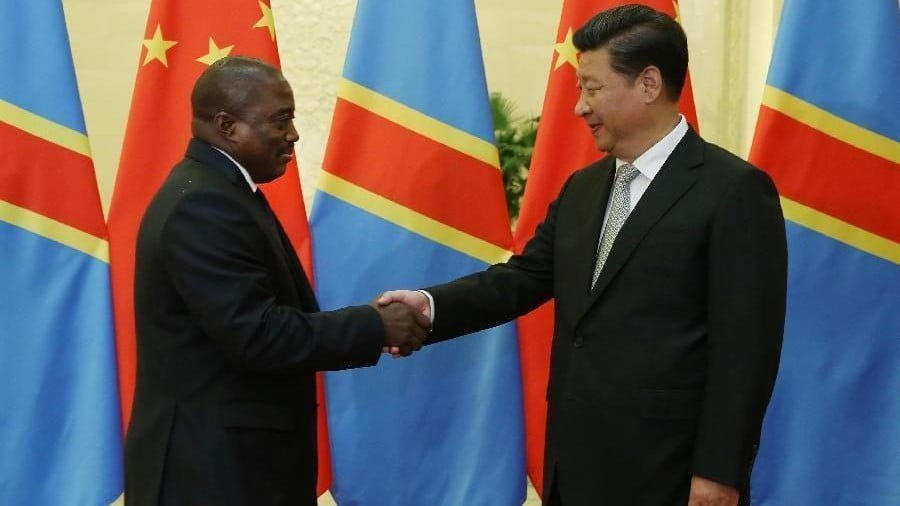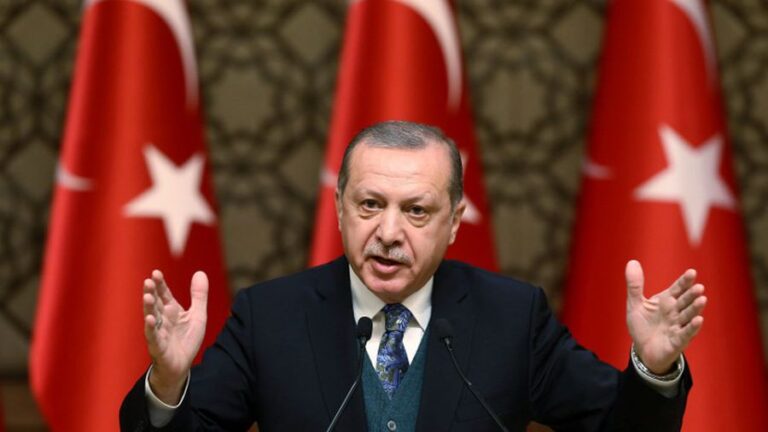China Is Centralizing Its Levers of Control Over the Congo
The creation of a business association of Chinese mining companies in the Congo should be interpreted as Beijing centralizing its levers of control over the country through the establishment of a powerful lobbying group that will undoubtedly advance the strategic interests of the People’s Republic while the Central African state undergoes an unprecedented political transition fraught with developing Hybrid War tumult.
Bloomberg reported at the beginning of this week that 35 Chinese mining companies came together to form the “Union of Mining Companies with Chinese Capital” (also known as USMCC per its French acronym) in the Democratic Republic of the Congo (DRC or simply Congo) “at the initiative of China’s embassy and on the advice of Congo’s mines minister”. This represents nothing less than the establishment of a powerful lobbying group that centralizes China’s enormous economic influence over the Congo and provides Beijing with the possibility of exerting its political will, interestingly at what was supposedly the suggestion of Kinshasa itself. On the surface, it might seem peculiar that a mineral-rich country would ask its top trading partner to do such a thing given the predisposition of any state to worry about losing its sovereignty through such means, but the situation in the Congo is unusual by any standard and deserves some further elaboration in order to understand the current context.
The Slow-Motion Collapse
The Western European-sized state and former battleground of the so-called “African World War” that killed an estimated 5 million people is once again on the edge of chaos as an incipient Hybrid War rages along parts of its periphery, allegedly driven by incumbent President Kabila’s postponement of the planned December 2016 elections for logistical reasons that would have deprived some of the electorate of their democratic rights. The real reason, however, is that the West is very uncomfortable with the Congo’s fast-moving and full-spectrum strategic partnership with China that has allowed the People’s Republic to gain control over the majority of the world’s cobalt production and possibly pioneer a trans-African connectivity corridor between the continent’s two coasts. This was explained in detail in the author’s June 2016 analysis titled “China vs. the US: The Struggle for Central Africa and the Congo”, which also accurately predicted the contours of the country’s developing conflict.
Since then, Kabila finally committed to holding elections this December, but the electronic voting mechanisms that his country plans to use were hypocritically criticized by the US for self-serving reasons intended to delegitimize the vote ahead of time in case his forthcoming designated successor wins at the polls, which remains a theoretical possibility. The author also elaborated on this in a March 2018 article about how “US Criticism Of Congo Highlights E-Voting Hypocrisy And Hybrid War Threats”, which followed an earlier analysis just two weeks prior titled “Congo Mining Code: Kabila vs. Cobalt Companies” that focused on how this new piece of legislation levelled the lopsided playing field between the state and international mining companies by giving Kinshasa a much greater share of royalties on “strategic minerals” such as cobalt. The recently promulgated mining code was seen as a serious threat to Western mining interests and reason enough to continue with the Hybrid War on the Congo.
Balancing The Blowback
As it turns out, however, the bulk of China’s investment in the country is concentrated in the mining sector, with even the largest non-mining joint project of the $13 billion Inga 3 dam indirectly connected to it given the potential that it has to take the Congo’s power-hungry mining operations to the next level upon expected completion in the next seven years. Therefore, China’s interests were also affected by this mining law, but the Congo evidently wanted to remain on the country’s good side by signaling that this legislation wasn’t aimed against it, hence the friendly suggestion that Beijing centralize its economic operations into a powerful lobbying group that will inevitably strengthen its political position. This is useful for Kinshasa because it creates a constructive counterforce for opposing Western influence, but it also carries with it certain strategic risks if the situation spirals out of control.
Katangese Considerations
China’s motivation for transforming its economic levers of influence into ones of political control is self-explanatory because it seeks to secure its presence in the strategic region of Katanga where most of its mineral investments are concentrated, as well as where it has the greatest potential of combining the recently refurbished Benguela Railway in Angola with its TAZARA counterpart in Tanzania and Zambia for streamlining a cross-continental bicoastal connectivity corridor. Given the developing Hybrid War on the Congo, however, China has no direct means of protecting this priceless piece of Central African real estate and isn’t (yet) ready to commit private military forces (“mercenaries”) there for that purpose. Furthermore, doing so might be interpreted as exceptionally hostile because of the history that Katanga has in being exploited by mercenaries who attempted to sever this mineral-rich region from the state at the behest of their Western masters.
The recent revival of the dormant 1999 Congo-Russian military agreement for Moscow to provide Kinshasa with arms and advisors is a step in the direction of this Great Power fulfilling its grand strategic ambitions to “balance” Afro-Eurasian affairs and provide “outsourced security solutions” for the New Silk Road, but it can’t be assumed that Russia will succeed with these objectives at the pace and scope that China needs in order to secure its Katangese mineral and connectivity investments. Therefore, Beijing understands the utility of leveraging its enormous economic influence for political means in encouraging Kinshasa to commit its forces to safeguarding these sites in the Katanga region, otherwise China might take the lead in a forthcoming UN stabilization mission there or perhaps even a unilateral one to do so instead if the Hybrid War escalates to such a level that its interests are credibly endangered.
That’s not what China wants, however, as it would rather “Lead From Behind” through a combination of its offshore aircraft carrier-based forces and indirect military support to its in-country counterparts & their (Russian?) “mercenary”/”advisor” allies than to get directly involved in any African conflict, which is why it’s so important for the People’s Republic to first centralize its economic influence in the country through the recently created USMCC political lobbying organization in order to coordinate such an operation under those circumstances. In the worst-case scenario, the dominant Chinese economic and political presence in the southeastern part of the country could be relied upon to turn a “decentralized” Katanga into a de-facto “protectorate” until its reincorporation into the Congo, or even into an outright Chinese ally if ever becomes independent through the course of any forthcoming conflict.
Concluding Thoughts
It should be reminded that China officially supports all countries’ territorial integrity, but that it – like all states – would act to preserve and expand its interests “if push came to shove”, meaning that Beijing could show “pragmatic flexibility” in adapting to changing conditions in the Congo by “unofficially engaging” with local authorities in the Katanga region so as to safeguard its strategically precious mineral and connectivity investments there. The creation of the 35-company USMCC lobbying group could facilitate such measures under those complex circumstances, while in comparatively better ones it’ll work to expand China’s political influence throughout the entirety of the Congo, meaning that it’s a win-win for China regardless of whether the country descends further into Hybrid War or its first-ever democratic transition of power is a success. Therefore, no matter what happens, China isn’t going to cede its ultra-strategic position in the Congo but will do everything in its power to strengthen it.







